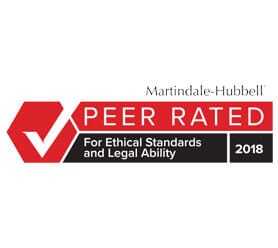



The United States Sentencing Commission has changed the UNITED STATES SENTENCING GUIDELINES to REDUCE sentences for ALL defendants, both undergoing federal prosecution as well as those already sentenced and imprisoned in a federal penal institution. The sentencing revision has the effect of reducing sentences by approximately 24 months!
In April, 2014 the UNITED STATES SENTENCING COMMISSION voted unanimously to reduce ALL future UNITED STATES SENTENCING GUIDELINES Base Offense Levels by two levels. (Amendment 782). On July 18, 2014, the COMMISSION again voted unanimously to make this change RETROACTIVE, making it available to every federally incarcerated inmate serving time for a nonviolent federal drug offense. The new rules were not stopped by Congress and took effect on November 1, 2014. This has been the most sweeping change in federal drug sentencing guidelines since the guidelines took effect in 1987 under the United States Sentencing Reform Act of 1984.
As a result of these changes, some 46,290 currently incarcerated federal prisoners serving time for nonviolent federal drug crimes are eligible to seek relief. The relief is not automatic for those sentenced prior to November 1, 2014. It IS, however, automatic for all federal criminal drug defendants sentenced on or after November 1, 2014. For those sentenced prior to November 1, 2014, each inmate must petition the sentencing court for the reduction authorized by these changes. NOBODY in federal custody on a nonviolent drug offense is EXCLUDED! Each inmate must petition the court that sentenced him/her for the reduction authorized by these dramatic changes. The idea, of course, is to allow those federal drug offense defendants to receive a sentence matching the sentences being imposed upon incoming prisoners.
While it is up to the discretion of the original sentencing judge as to whether to grant a two level reduction, that discretion cannot be arbitrary and any refusal to reduce a sentence must be based upon a meaningful justification. Mere disagreement with the law, or the change in the Guidelines, would certainly not appear to be a valid discretionary denial. Rather, that would be arbitrary and solely the judge’s disagreement with the new guidelines– in other words, a total abuse of discretion! Abuses of discretion are, of course, reviewable by each of the various United States Circuit Courts of Appeals. It has been estimated by the United States Sentencing Commission that some 395 inmates will avoid dying in prison as a result of this change in the Guidelines. The new laws and regulations are said to help protect public safety, as studies have shown that longer sentences have virtually no impact upon a given inmate’s likelihood of re-offending. In other words, those “minimum mandatory” 5, 10 and 20 year sentences for drug offenses accomplished absolutely nothing in terms of rehabilitation or protection of the public from recidivism. Various groups have been pushing for this reduction in punishment for federal drug offenses for many years. It was only through their hard work and the enlightened minds of the Attorney General (Eric Holder) and some of those in the Obama Administration that these changes finally came about. They are reminiscent of the relief granted to some 24,000 inmates when the Sentencing Commission reduced the crack cocaine sentences retroactively in 2007 and 2011.
These changes also reduce prison costs and alleviate some of the extremely oppressive overcrowding issues encountered by a system that is stretched to 40% beyond its intended capacity. Eligible offenders could have their sentences reduced by an average of 25 months, or 18.8%. The delay of release of any prisoner until November 1, 2015 was intended to allow sufficient time for the federal courts to deal with the expected flood of petitions by federal inmates throughout the United States District Courts. The reductions are not automatic and the process must be started by the filing of a Motion for Sentence Reduction pursuant to 18 U.S.C. Section 3582(c). However, not every defendant is certain to get relief under the new Guidelines. Of course, the judge can either grant the full relief, grant only partial relief, or grant no relief at all if the circumstances dictate. Like everything else in federal court, the better and more thorough an inmate’s motion is written, edited and finalized, the better his/her chances of obtaining relief from the sentencing judge.
Federal Criminal Defense Attorney Joseph Shemaria and his associates are knowledgeable about all aspects of federal criminal law and in particular, federal controlled substance (drug) cases, as well as the United States Sentencing Guidelines and Amendment 782. Having written and published nationwide articles and having been counsel for literally hundreds of convicted defendants, resulting in the publication of over 30 published opinions by the various Courts of Appeal, Mr. Shemaria is uniquely qualified to write the most compelling, persuasive motions on behalf of his clients. Contact Joseph Shemaria today for a free consultation. Call 310-278-2660 or 800-898-9555 toll free.
Call 310-278-2660 Today For The Tough Defense You Need





9171 Wilshire Blvd
Suite 500
Beverly Hills, CA 90210
Beverly Hills Law Office Map